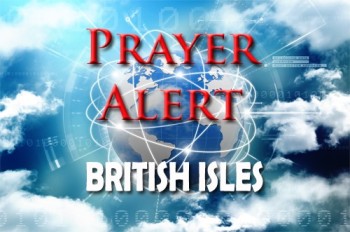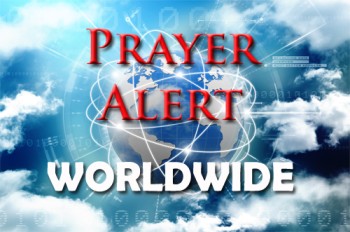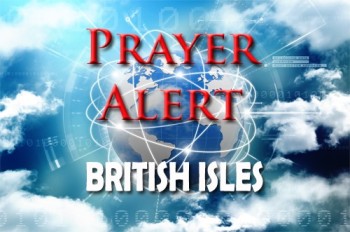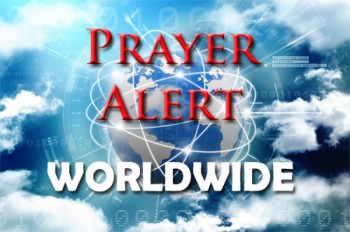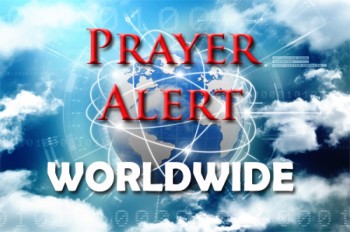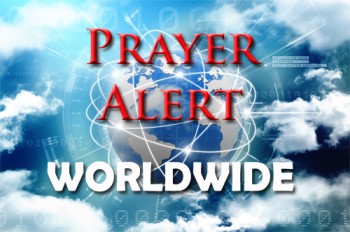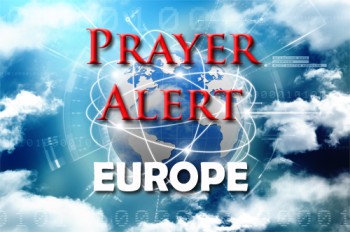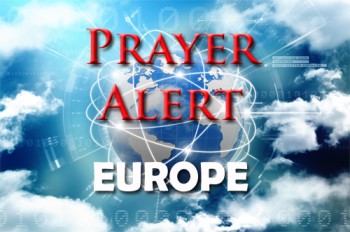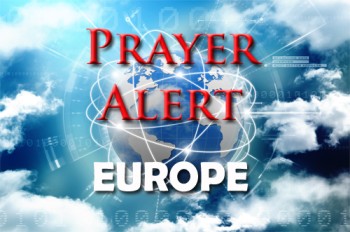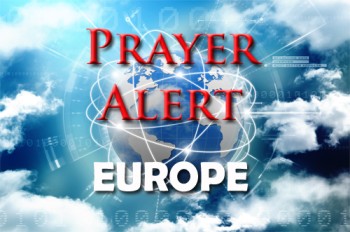Displaying items by tag: elections
Local elections likely to reflect immense voter disillusionment
The 1 May local elections in England are set to reflect deep public disillusionment with the traditional two-party system, according to a recent poll for Channel 4. Of those surveyed, 41% said ‘none of the above’ when asked who they trusted most to govern effectively: Nigel Farage scored 23%, and Keir Starmer only 19%. With over 1,600 council seats across 23 councils up for grabs, experts predict that a record number of councils may end up with no single party in control. Support is highly fragmented: Reform leads with 26%, followed closely by the Conservatives at 25%, Labour at 18%, the Liberal Democrats at 17%, Greens at 8%, and others at 6%. Reform’s surge reflects voter priorities such as immigration, while traditional parties are seen as out of touch. Voters are driven by national concerns - cost of living, healthcare, and governance - more than local issues. Both Labour and the Conservatives must urgently reconnect with a public tired of political stagnation and broken promises.
Global: growth of women in power almost halts
In 2024, nearly half the world’s population voted, but global female political representation saw its slowest growth (just 0.03%) in twenty years. Women now make up 27% of parliaments globally, with declines in representation in 27 countries, including the USA, Portugal, and South Africa. Despite progress in nations like Mongolia, Mexico, and Namibia (which elected its first female president), setbacks in others, such as Tuvalu losing its sole female MP, highlight fragile gains. Countries with gender quotas elect more women, averaging 29% compared to 21% in non-quota nations. Barriers such as ambition gaps, financial inequality, disproportionate caregiving roles, and lack of maternity leave deter women from entering politics: there has also been an increase in violence against women in public life, including disinformation campaigns. Experts warn that fewer female mentors and societal challenges may discourage young women from pursuing political careers, hindering future progress in gender parity.
Irish elections: what happens next?
Ireland’s general election has set the stage for coalition negotiations to form the next government. Fianna Fáil emerged as the largest party with 48 seats, followed by Sinn Féin with 39 and Fine Gael with 38. With 88 seats needed for a majority, Fianna Fáil and Fine Gael are expected to renew their coalition, perhaps with support from independents or smaller parties. Micheál Martin, leader of Fianna Fáil, is poised to return as Taoiseach under the coalition's rotation agreement. Fine Gael, led by Simon Harris, will likely alternate leadership roles during the government’s five-year term. Despite Sinn Féin’s gains, the other parties have ruled out collaboration with them. Negotiations will center on policies like enterprise, EU relations, and home ownership. Meetings and talks are expected to last for weeks, with the Dáil returning on 18 December. Ministers will remain in caretaker roles until a coalition agreement is finalised, likely in early 2025.
Christian hopes in Indonesia’s new era
As Indonesia witnesses a leadership transition, its thirty million Christians are cautiously hopeful for positive change under president-elect Prabowo Subianto and vice president-elect Gibran Rakabuming Raka. Subianto, a former military general, secured 58% of the vote in this year’s election. Indonesia, the second-largest Muslim country in the world, is home to a Christian minority (11% of the population). While the government allows Christians to worship freely, evangelism remains illegal, and Muslim converts often face social persecution. There are concerns about Subianto’s past support from conservative Islamic groups who might influence his policies. In the past the government has not actively persecuted Christians, but it has not always defended them either, particularly in areas like Aceh, where Islamic law is enforced. Christians are praying that the new leadership will uphold religious freedoms and protect their rights in a predominantly Muslim nation.
Biden calls on America to 'preserve our democracy' in defining speech
In his first address since withdrawing from his re-election bid, President Joe Biden called on Americans to "preserve our democracy" and emphasized the need for "new voices, fresh voices, and younger voices." Speaking from behind the presidential desk, Biden invoked historical figures like Jefferson, Washington, and Franklin, underscoring the nation's inflection point and the power held by its citizens. Biden acknowledged his decision to step aside, citing the personal sacrifice it entailed and stressing that nothing should come before saving democracy, including his ambitions. He emphasized passing the torch to a new generation and framed his struggles as strengths, reflecting on his journey from modest beginnings in Scranton, Pennsylvania. Surrounded by family, including his son Hunter, daughter Ashley, and First Lady Jill Biden, he addressed the softening of his voice and the legacy of his presidency. Without mentioning Donald Trump, he highlighted the threat to democracy and praised Vice President Kamala Harris. He concluded with a call to action, urging unity to preserve democracy, and received a minute-long applause from those present.
South Sudan: peace talks face stumbling block
South Sudan's peace talks, which have been hosted by Kenya since May, were nearing completion, but are facing a setback due to opposition demands to revoke a bill permitting detention without warrants. The talks - dubbed Tumaini, Swahili for hope - have resulted in a draft agreement proposing to extend the country's transitional period and postpone the coming election (due on 22 December) to allow finishing up the country's constitution and electoral laws. However, opposition leader Pagan Amum Okiech has refused to sign an agreement unless the proposed National Security Act is repealed. He says, ‘This law violates the fundamental rights and freedoms of South Sudanese citizens; it eliminates civic and political space. There can be no peace or democracy under such a law.’ Human Rights Watch has called on President Kiir to reject the bill, warning it undermines human rights and democratic progress.
France: manoeuvres ahead of second round of elections
Opponents of Marine le Pen’s far-right party National Rally (RN) have intensified efforts to block it from power, with over 200 candidates withdrawing from run-off elections to avoid splitting the anti-RN vote. RN led the first-round vote; the radical left-wing LFI was second, and Macron's centrist group third. Polls give RN between 250 and 300 seats: they need 289 for an outright majority. Macron has said that the top priority is blocking the RN, even if that meant endorsing an LFI candidate, but it was uncertain whether voters would follow that route. Le Pen stated RN would not form a government without a workable majority, hinting at alliances with other parties if needed. The RN would cut funding to the EU, and its anti-migrant policies have been criticised by human rights groups. There are fears that a hung parliament would lead to policy paralysis for the remaining three years of Macron's presidency.
France: Macron’s gamble looks like backfiring
France's political future is uncertain as Marine Le Pen’s far-right National Rally (RN) leads opinion polls ahead of parliamentary elections on 30 June. Emmanuel Macron faces potential ‘cohabitation’ with an opposing prime minister, or a fragmented chamber unable to form a stable majority. The polls give RN at least 35% in the first round, with a left alliance at 29% and Macron's centrists around 20%. A high turnout is expected. RN could possibly win more than half the 577 seats being contested. Le Pen is already planning to challenge Macron's authority, especially regarding military decisions: her candidate for prime minister, Jordan Bardella, opposes sending long-range missiles to Ukraine. Current prime minister Gabriel Attal is seeking to highlight RN's divisiveness and the left’s sectarian policies. A final debate offers a last chance to sway voters.
Europe: big swing to far-right in EU elections
Following the European Parliament election, the European People's Party (EPP) has secured 184 seats, a quarter of the 720-member chamber. Far-right groups also made significant gains. The centre-left Socialists and Democrats remained stable, but the liberal Renew Europe group suffered significant losses. EPP leader Manfred Weber emphasised the party's alignment with industry, rural areas, and farmers. The party might form a coalition with socialists and liberals or negotiate with right-wing parties without alienating centrists. Far-right parties like France's National Rally and Italy's Brothers of Italy made notable strides, while Spain's Vox party lost ground to a new far-right party. If unified, the far right would be the second-largest force in Parliament. Ursula von der Leyen's re-election prospects as Commissioner are uncertain, as she needs full support from the three centrist groups.
Fake news ahead of EU elections
Ahead of the EU and UK elections, false claims about immigration are spreading, particularly on social media. One Facebook post says that nearly 97% of Spain’s minimum basic income recipients are immigrants. In reality, official data show that 82.4% are Spanish nationals and only 17.6% foreigners. Elsewhere, Dutch far-right activist Eva Vlaardingerbroek has said that most residents of Amsterdam, Brussels, and London are immigrants, whereas official statistics contradict this. Immigration remains a significant issue in Europe, influencing voter sentiment and political strategies. A recent poll reveals that half of Europeans disapprove of the EU’s migration policies, wanting stricter border controls. Some national governments have adjusted their immigration policies in response.
